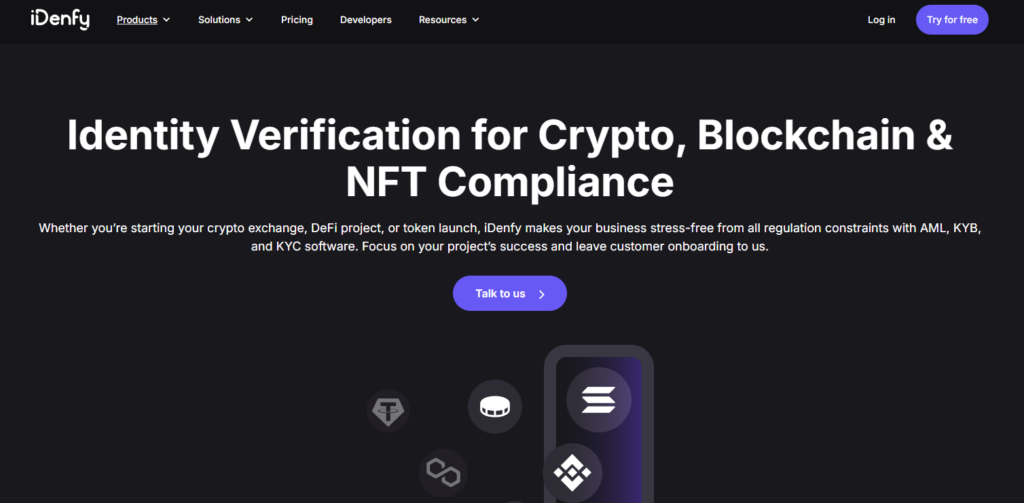The first cryptocurrency was released in January 2009. Does not look like it was a long time ago, right? But the things it created, all of the other altcoins, blockchains, and whatnot, the cryptocurrency and blockchain really changed the financial world as a whole. Of course, where there are the finances, there are the regulations. The cryptocurrency here is no exception.
To this day, some regulators have raised concerns about these currencies and blockchains, requiring governments to develop laws to ensure security and prevent fraud so businesses and individuals engaged in crypto transactions must adhere to these regulations to avoid legal issues. Let’s talk about it more.
Blockchain and Crypto Regulations
Cryptocurrency are not the same on the different jurisdictions, with some countries embracing digital assets and others imposing strict controls. The primary focus areas for compliance include anti-money laundering (AML) policies, Know Your Customer (KYC) regulations, tax obligations, and consumer protection laws.
AML and KYC Regulations

Certain measures must be implemented if the organizations and companies want to be safe and fight illicit activities such as money laundering and terrorism financing – crypto identity verification would work great for this case. It would collect personal information from users that visit and interact with the company, verify their identities, and ensure transparency in financial transactions.
Financial Action Task Force (FATF), have global standards for AML and KYC compliance. Some countries that follow FATF recommendations have very strict verification requirements on crypto businesses, ensuring that all participants are adhering to legal financial practices.
Taxation of Cryptocurrencies
Tax authorities across the world have developed guidelines (different in some countries) for reporting crypto earnings and capital gains. For example, in the United States, the very unique Internal Revenue Service (IRS) classifies cryptocurrencies as property, meaning individuals and businesses must report their crypto transactions and pay taxes accordingly – other countries and jurisdictions, such as the European Union, have different laws for taxing digital assets, requiring businesses to maintain accurate records of transactions.
If somebody would try to somehow avoid or simply fail to comply with tax laws, they could get fined. Crypto investors and businesses must stay updated on tax regulations in their regions and ensure proper reporting so that no surprises would come up.
Consumer Law Protection
Concerns regarding investor protection have been raised by the cryptocurrency markets’ volatility. Regions have introduced laws and passed legislation to protect customers and users from fraudulent schemes.
In countries like the US, the Securities and Exchange Commission (SEC) regulates Initial Coin Offerings (ICOs) and cryptocurrency assets that act as securities, so ensuring that the token offerings comply with securities laws is important to prevent enforcement proceedings.
Compliance Measures for Crypto Businesses
KYC and AML Practices
Crypto exchanges and wallet providers must be compliant by:
- Identifying crypto verification processes
- Monitoring transactions for unusual activities
- Reporting any unusual activities to regulatory authorities
These practices will keep your company or organization safer, which helps in the long run.
Smart Contract Regulations
Automated transactions on blockchain networks by smart contracts must align with legal standards. Some countries require businesses to ensure compliance with contract laws, as they see smart contracts as legally binding agreements.
Transparency
Regulatory compliance often involves maintaining transparent records of all transactions, so crypto businesses should implement secure systems that would track transaction histories, customer and user identities, and tax obligations.
Compliance with International Sanctions
International sanctions are not a joke, and global regulators impose them on individuals and entities that are or have been involved in illicit activities. Crypto businesses must ensure they do not make transactions with blacklisted individuals or organizations to avoid fines.
Issues in Achieving Full Crypto and Blockchain Compliance
Differences in Countries
One of the biggest issues in crypto compliance is the varying regulations, which are almost impossible to predict. It is not a secret that businesses have their institutions in multiple countries, they must have diverse legal requirements, making compliance a complex process. Some nations have clear regulatory frameworks, while others have restrictive policies, making it very challenging for crypto businesses to operate without any issues.
Anonymity
The whole cryptocurrency and blockchain thing is very well-known for its unique trait – the anonymity of transactions, making it difficult for regulators to track illicit activities and who is sending the transactions to whom. The KYC and AML measures are improving transparency, but fraudsters are finding various ways to bypass these measures constantly. So, to avoid these fraudsters, businesses must invest in tracking tools and partner with compliance.
Decentralized Finance (DeFi) and Compliance
DeFi has additional challenges that other platforms do not, which makes it difficult for regulators to implement KYC and AML, and new ways are being explored to regulate DeFi, which would change compliance as a whole in the coming years.
Strategies for Strengthening Compliance
To avoid these issues, crypto businesses should stick to the following strategies:
Partnering with Regulatory Experts
Hiring legal and compliance professionals who specialize specifically in crypto regulations can significantly help businesses stay ahead and compliant with regulations; they are guiding companies in implementing the best compliance practices and avoiding potential legal issues that would not be nice to have.
Investing in Compliance Technology
If companies invested in artificial intelligence (AI) tools that automate compliance processes, they would be way safer. Also, trying to lower the risk of regulatory violations and monitor transactions in real time is a good practice.
Conclusion
For companies and organizations to feel safe in the crypto and blockchain landscape, they must consider using safe security measures and stay informed about the changes. Prioritizing compliance crypto businesses can offer trust, avoid legal complications, and contribute to the growth of the blockchain industry. As regulations continue to develop, staying ahead of compliance trends will be important to long-term success in crypto and blockchain.


